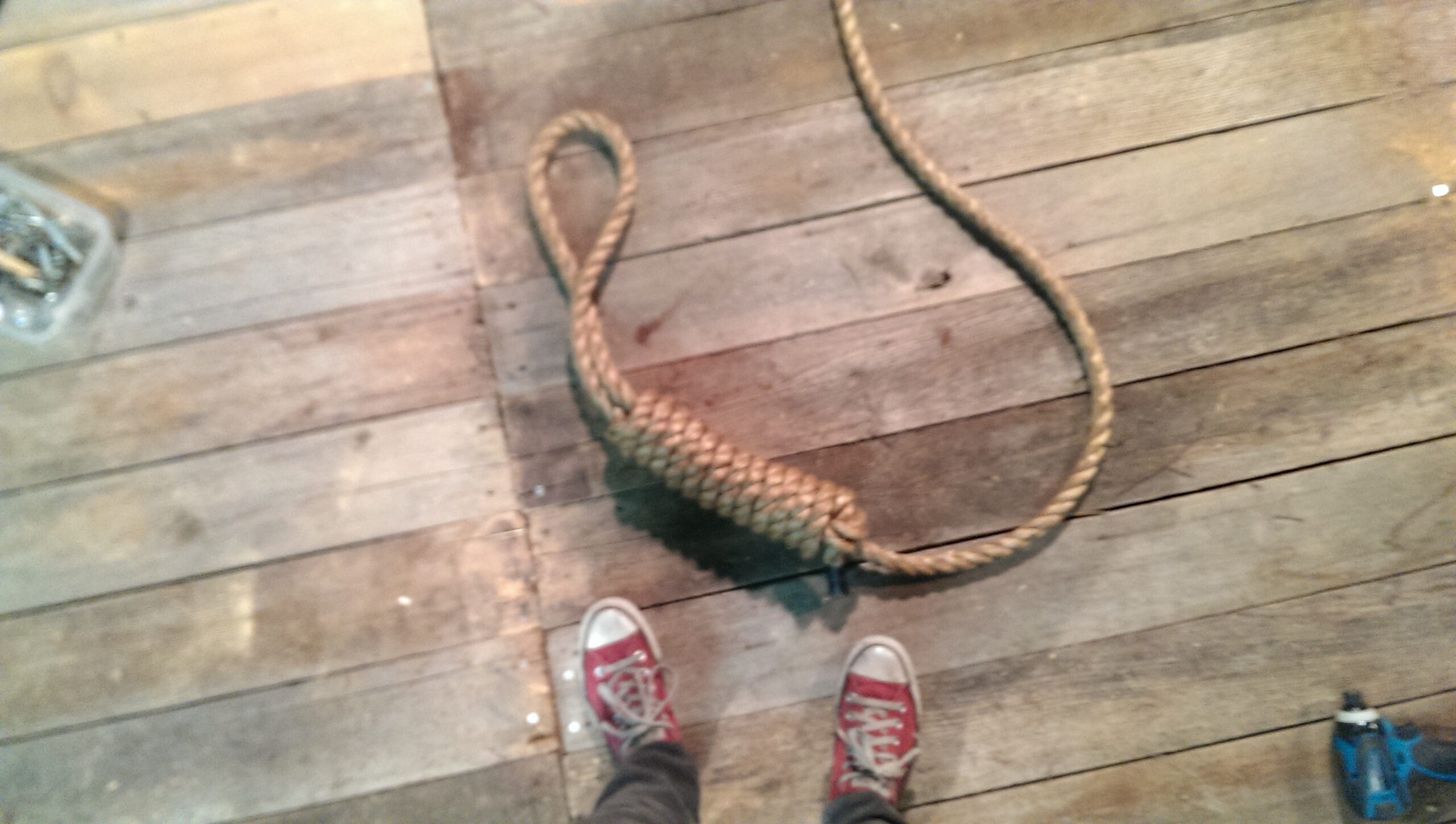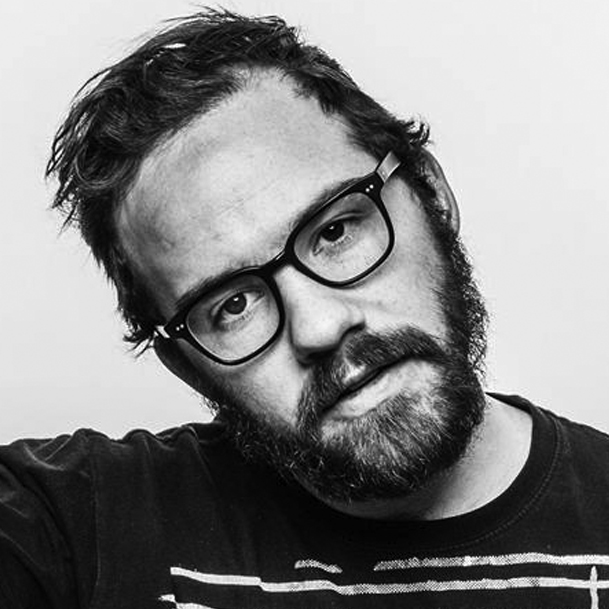Stack of Hats
So I’m editing this at Bad Dog Comedy Bar, sweating bullets before performing in my first long-form improv show ever. It’s called True Blue and it’s on every Friday night until the end of May. I got this gig because about five years ago some folks I went to theatre school with asked me to be in a play called Callaghan, which started a beautiful friendship. They went on to be very successful improvisers and comedians. I was just an actor back then. I guess I’m an improviser now? I improvise, so I’m an improviser, right?
When my non-artist friends talk to me about my career as an artist, I find it difficult to come up with things to say. It’s such a specific industry and it can be more effort than it’s worth to try to explain the ins and outs of it. So I find myself regurgitating the same sound bites.
“It doesn’t exactly pay the bills, but at least I’m doing what makes me happy,” has become so cliché that people I talk to say it for me before I can say anything. “I can’t imagine myself doing anything else,” sounds overdramatic and kind of makes me seem like I’m useless in every other area of my life (not entirely untrue, but I don’t want to let that cat out of the bag). The most honest description of what my theatrical career is like seems to be, “I have to wear a lot of different hats.”
I think this sentence is the most repeated refrain in my arsenal of career small talk because it’s probably the most true thing I can say.
I graduated from school with the same naïve and entitled thought process as many others fresh out of theatrical training institutions: I had completed my education in my field and I was owed a paid job as an actor. It took a couple of years for me to realize that attitude is simply laughable.
For the most part, our careers as artists, in this day and age, require us to do so much more than the first thing we decided we want to do. I still act, yes, but in my quest for roles to play I have added titles to my name like Boy Scouts badges on a sash. My producer badge, my writer badge, my dramaturg badge, my casting badge, my we-know-you-did-something-for-the-company/production-but-we-don’t-know-how-to-name-it badge… All things that allow me to be around theatre, even if I’m not acting. I think I was once called a wrangler for a show I worked on. I still don’t know what that means.
Last year, I pinned a particularly special badge on my sash: my director badge. In my mind, it has a beret and an old-timey conical megaphone on it, which is strange because neither I, nor any director I’ve ever worked with, have used either of these before. I guess I’m a director now. I’m figuring it out.
“I’m figuring it out.” Something else I find myself saying a lot.
The only difference between wearing my director hat (it’s not a beret) and wearing all my other hats is that the other hats I found myself wearing seemed to just show up. I didn’t really know what dramaturgy was until I found out I’d been doing it for years. I wrote, but never really considered myself a writer until someone asked me to write something for them. Not the case with directing. I decided I wanted to direct. I chose a play and directed it. But the experience was quite the same: learn by doing.
This is how a lot of my indie brothers and sisters are learning to create. Trial and error. I’ve found myself in a community that thrives on new ideas and risk. Each new idea is embraced. Each new technique attempted. Fresh works are gold if they’re good, and even if they’re not yet, let’s see how we can make them good. Such an environment is the only fertile soil my directing career could ever have taken root in. I firmly believe this. But it doesn’t come without certain drawbacks. An artistic paradise is only so until practicality rears back and boots it in the ass.
I work with a plethora of deeply talented, hard-working, many hat-/badge-wearing rock stars, and they all seem to be in a similar position. Artists who are able to produce works that thrill and delight—even get very good reviews—but whose work in the arts seems to counter their ability to pay their own bills. It’s difficult to learn and take risks in a practical setting when your failures may mean you won’t even get the $300 profit share you’re hoping will help cover a fraction of the bills you haven’t paid at the end of the run of your show. I don’t necessarily pose this as a complaint, but merely as an interesting set of restrictions and freedoms that us indie kids work with on a daily basis. It makes for a unique creation process.
I’ve only directed two plays so far, but I can safely say that the most “clever” decisions I’ve ever made have been out of necessity. I set Caryl Churchill’s The Skriker in a garbage heap because, well, garbage is free. All of a sudden, themes of environmental destruction, the death of innocence, disposable culture—so many of the deep themes of the play—exploded to life, all because we couldn’t pay for a set. In Trout Stanley, I didn’t want to pay for consumables, so all food and drink props were just blocks that said “food” or “drink.” This inadvertently opened up the storybook quality of the play and provided some lovely gags. All decisions I would never have made had I had the budget. And with each bottom-line-based decision, I’m learning that the expected choice is rarely the best one. While the Storefront Theatre and many other small theatres are working toward bigger budgets (mainly so we can pay our artists better), learning how to make decisions based on necessity has been crucial to my development as an artist.
In Jason Maghanoy’s Hangman, the play I’m directing at the Storefront, I’ve been able to make unconventional decisions for reasons other than necessity. I have puppets. I have hip hop. I have elements that don’t exactly scream “poetic dramatic western, set in a coal mining town.” All these decisions were made by thinking, “What if I couldn’t make the obvious choice? What if I couldn’t get a slide guitar and banjo?” I’m figuring it out again, but this time from a different angle.
There are many mixed blessings working in low-budget theatre. I wouldn’t be able to make the art I do if it weren’t for the stack of hats sitting in my closet. At the same time, I wouldn’t have that stack if it weren’t for my need to lean into anything theatre related. I’ve learned, every time I find myself doing something I’m not qualified for, that it’s probably a good thing for me, and a good thing for the art. Just like setting a play in a pile of garbage to save money.
Does any of that make sense? I hope so. I’m still barely an essayist. I got my badge, like, yesterday. Plus I’m an improviser now. I’m writing this live.
Daniel Pagett’s Hangman is on at Storefront Theatre until May 29. For tickets or more information, click here









Comments